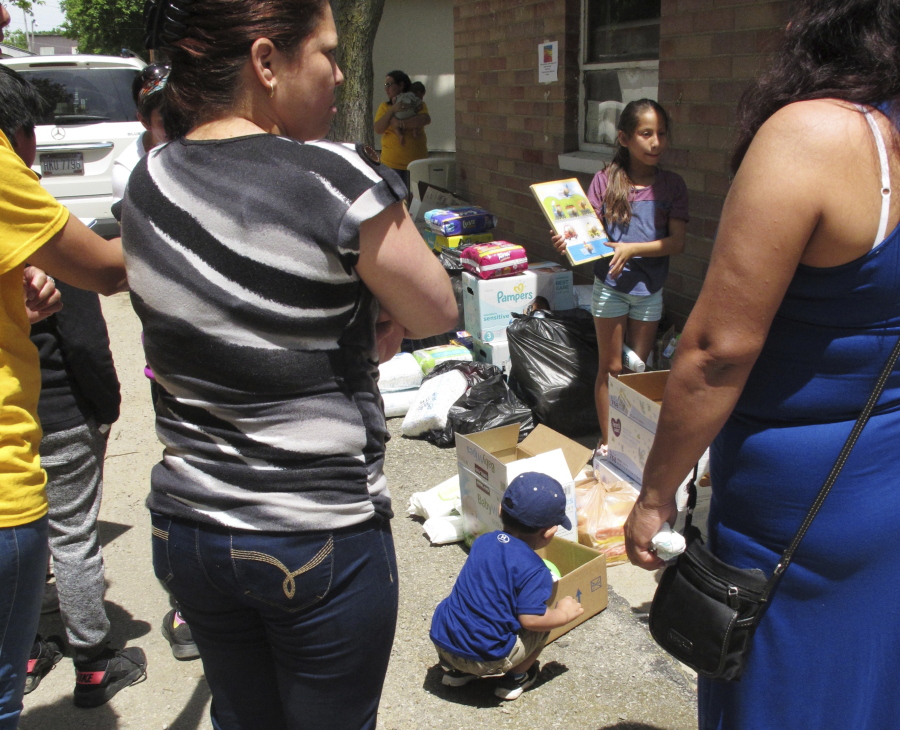NORWALK, Ohio — Two of the largest workplace immigration raids yet under the Trump administration, carried out just weeks apart in Ohio, have upended the lives of hundreds of children caught in the middle.
Unlike the migrant children removed from their families at the U.S.-Mexico border, many of these young people were born in the U.S. and are therefore citizens, and most haven’t been separated from their families entirely. What they face, though, is a future that is just as uncertain as they wait to find out whether their mothers and fathers will be deported.
Some families will be forced to decide whether to keep themselves together by moving everyone back to their home country, in most cases Mexico or Guatemala, or face being split apart if one parent stays with the children or parents let relatives or friends keep them.
“What’s happening on the southern border is happening on the northern border in a different way,” said Veronica Dahlberg, leader of Hola, a Hispanic advocacy group in Ohio. “But these children are going to suffer for many years from the trauma, the uncertainty, the fear.”
While children at the border were held separately from their parents in what some called cage-like atmospheres, churches and social service agencies made sure most of the kids in Ohio reconnected with relatives or stayed with caretakers. In some cases, parents in the Ohio raids were released with electronic tethers because there was no one else available.
It’s likely that hundreds of children are affected by the large raids in Ohio. The first resulted in the arrest of 114 workers at a gardening and landscaping company on June 5. Aid organizations, using information gathered from those detainees, estimate those parents collectively have 200 children.
There’s no tally yet on how many children were affected by raids Tuesday at four meatpacking plants. U.S. Immigration and Customs Enforcement officials said 146 workers were arrested in the raids this week because they are in the country illegally and believed to have used fake identities to get their jobs.
In the hours after Tuesday’s raid began, churches and social service agencies in Salem, where most of the workers were detained, arranged for their children to be picked up from their homes and babysitters.
Volunteers entertained about 50 youngsters of all ages with games and fed them pasta. Those who were with the children said the youngest ones played happily while their older brothers and sisters cried with looks of shock, not knowing when they would see their parents again or where they would go.
Most were picked up that night by a parent or relative who wasn’t arrested, but a few went home with other families, said Sister Rene Weeks, director of Hispanic ministry at St. Paul Catholic Church.
One schoolteacher took home five children, who were reunited with their parents the next day after some were released with electronic ankle monitors by immigration authorities because there was no one else to care for their children.
About 60 of the workers were released based on health or family considerations under a longstanding policy that gives ICE discretion to release detainees because of humanitarian concerns, said Khaalid Walls, an agency spokesman.
While President Donald Trump has come under fire for a policy that has separated more than 2,300 children from their parents at the Mexico border, these large-scale workplace raids have been going on since President Bill Clinton was in office, and arrests increased dramatically during his second term.
A study by the Urban Institute and commissioned by a Hispanic civil rights organization a decade ago found that children who suddenly lose contact with a parent detained in workplace raids are left with stress, emotional trauma and material needs that can lead to mental health disorders.



